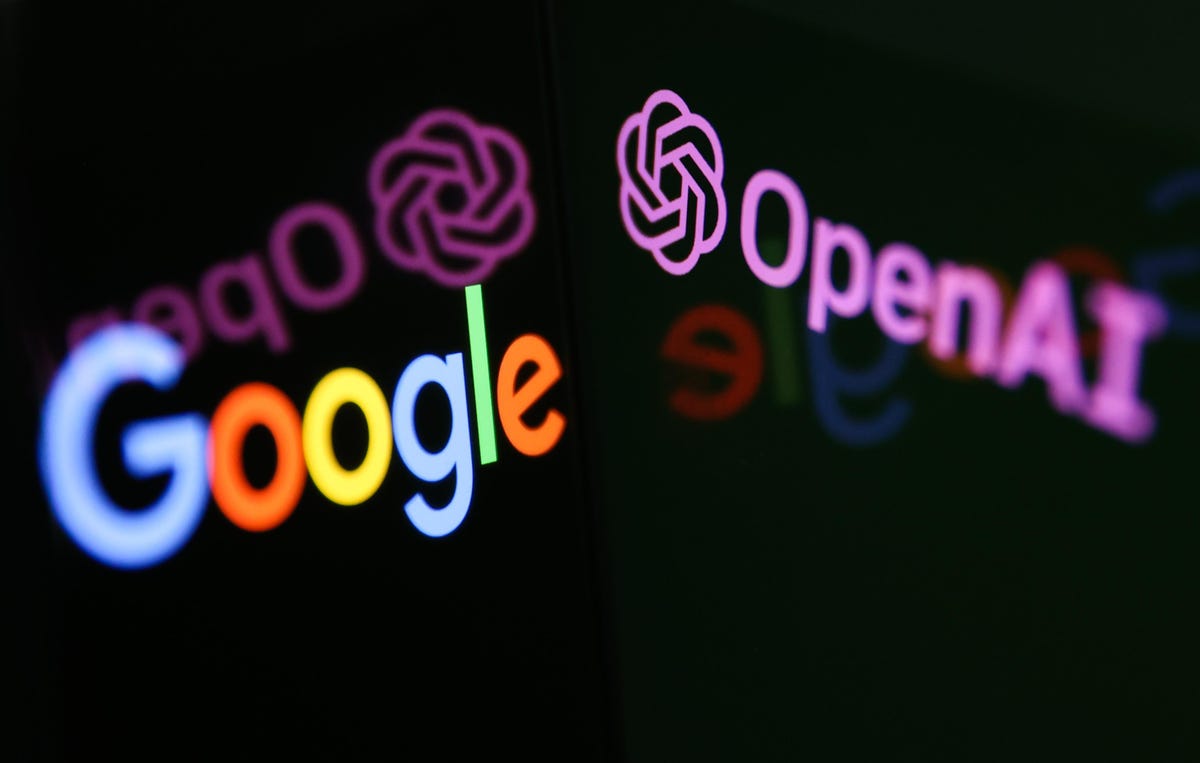[ad_1]

Google logo displayed on a phone screen and OpenAI logo on website displayed on a laptop screen are … [+]
ChatGPT has taken the world by storm. Many have asked if it is the new way to do a search. This question is intriguing given the potentially massive impact on the search engine business space and the competitive elements therein. However, that is not the question I ask – in this article – I explore a related question – if you have a business that has relied on Search Engine Optimization (SEO) for traffic and relevance, where does the ChatGPT leave you?
Chat vs Search
There is a fundamental user intent difference between chat and classic search (regardless of who is providing the facility). Classic search returns multiple answers, ordered in the manner the search algorithm believes is most relevant to the query. Search results can go into many pages. A Chatbot returns one or more answers (but often one), and more than one answer is often returned when the question asks for multiple options. Both approaches are provided by search today – but imply different things for Search Engine Optimization (SEO).
Lets take a quick example: I searched for “good cauliflower pizza crust recipe” on google. It returned about 25 different websites with recipes, as well as pointers to other related questions. The same question asked of ChatGPT returned one specific recipe in detail, with a message that hoped I enjoy my pizza.
From a consumer point of view, either could be better. If my goal was to find several recipes and do the work to select between them, the first is better. If I just wanted a recipe, the second is better. However, the entire structure of Search Engine Optimization (SEO) is based on the first. If my business is focused on getting traffic from people looking for cauliflower crust recipes (and possibly selling them other things such as pre-made cauliflower crust), optimizing to rank higher on the first is a key SEO goal. Entire industries, best practices, monitoring tools, etc. exist to help businesses achieve this goal.
If customers decide the use the second approach – where does it leave these businesses? ChatGPT picked a single recipe – with no indication of the source. A follow-up question inquiring about the source revealed that the answer was assembled from many pieces of information that the AI had gathered about recipes.
What does this mean for a business?
- If your goal is to be found on a search – how to get a tool like ChatGPT to return your website as an answer is not clear. For classic SEO – there are well defined guidelines (backlinks, appropriate content, well-formed pages etc.) that businesses can follow to get their pages ranked higher on searches of selected keywords.
- For those businesses who help others optimize SEO – what would they optimize for ChatGPT? Many tools and resources have popped up explaining how to use ChatGPT for writing SEO-optimized content (and whether that is even a good idea), but these are about using ChatGPT to make your website friendly to traditional search, not to get a tool like ChatGPT to return your website.
So – what can you do?
- It is too early to know definitively what can be done. Anecdotal evidence suggests that these models learn from massive repositories of information, so being known in as many online places may help the model identify your brand. However, till we have more knowledge, or guidance from the producers of these models, it will remain a challenge.
- Monitoring data on what fraction of queries, and what types of queries shift to these approaches vs. traditional search, may help businesses understand if a continuing investment in SEO is worthwhile over time.
Takeaways
As the chat approach becomes more popular, it is worth examining your business’ search marketing strategy and trying to understand how it fits in with these trends. For example:
- Has your strategy been to create pages that answer important questions (for example in a blog) and use those search hits to bring people to your site? If so – what will happen if a chat interface decides to answer the question on its own?
- On the other hand – if your goal is for people to find very specific content (such as a cauliflower recipe-making class starting next month) – that is less likely to see interference from a chatbot.
All in all – we are early in this journey, and time will tell how this plays out. Meanwhile – it is worthwhile to monitor your SEO stats and see if there is a notable change as these technology start to expand in volume.
[ad_2]
Source link
